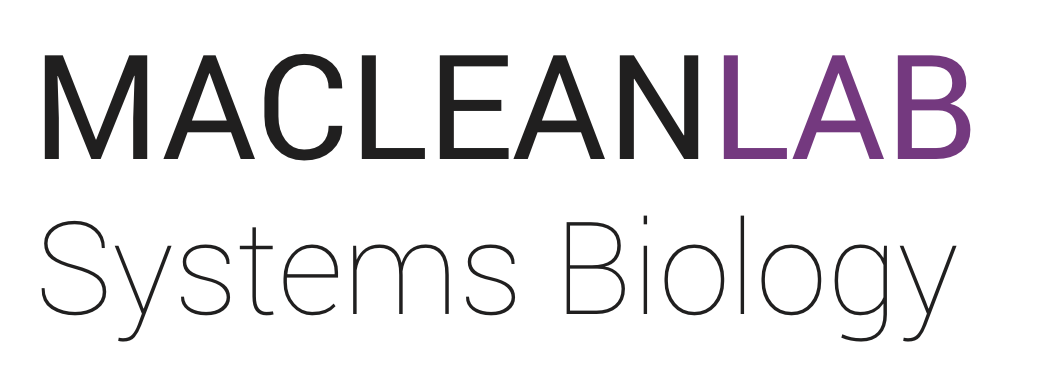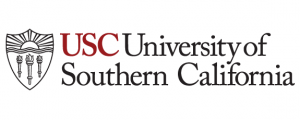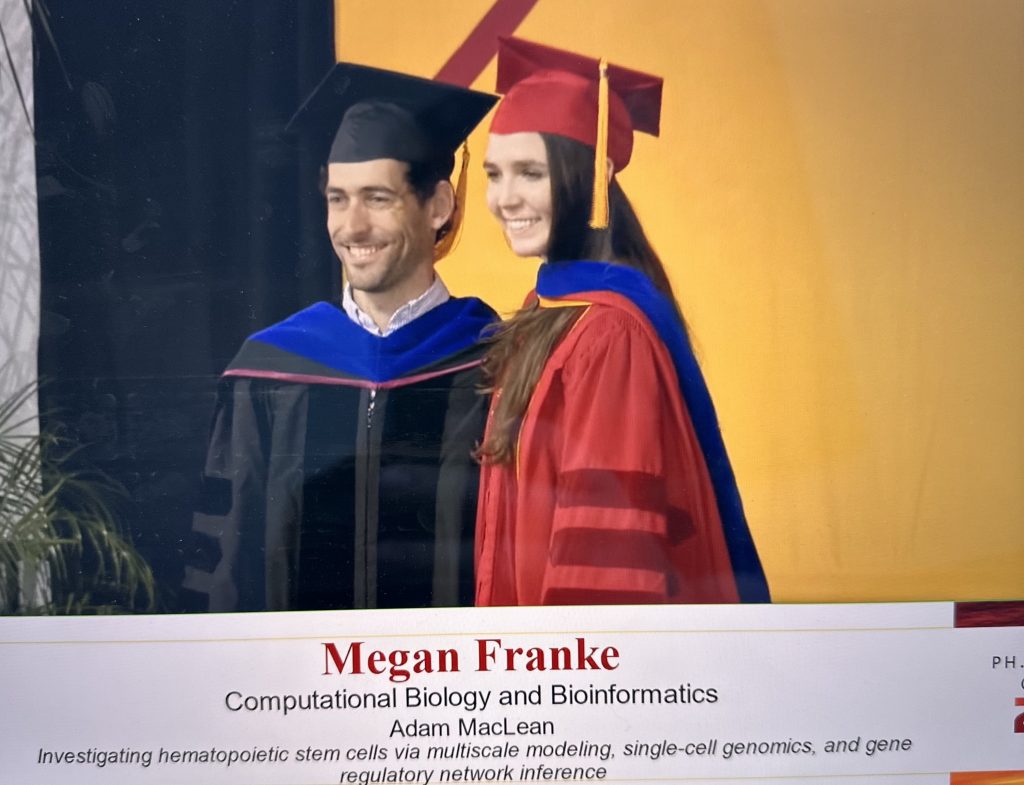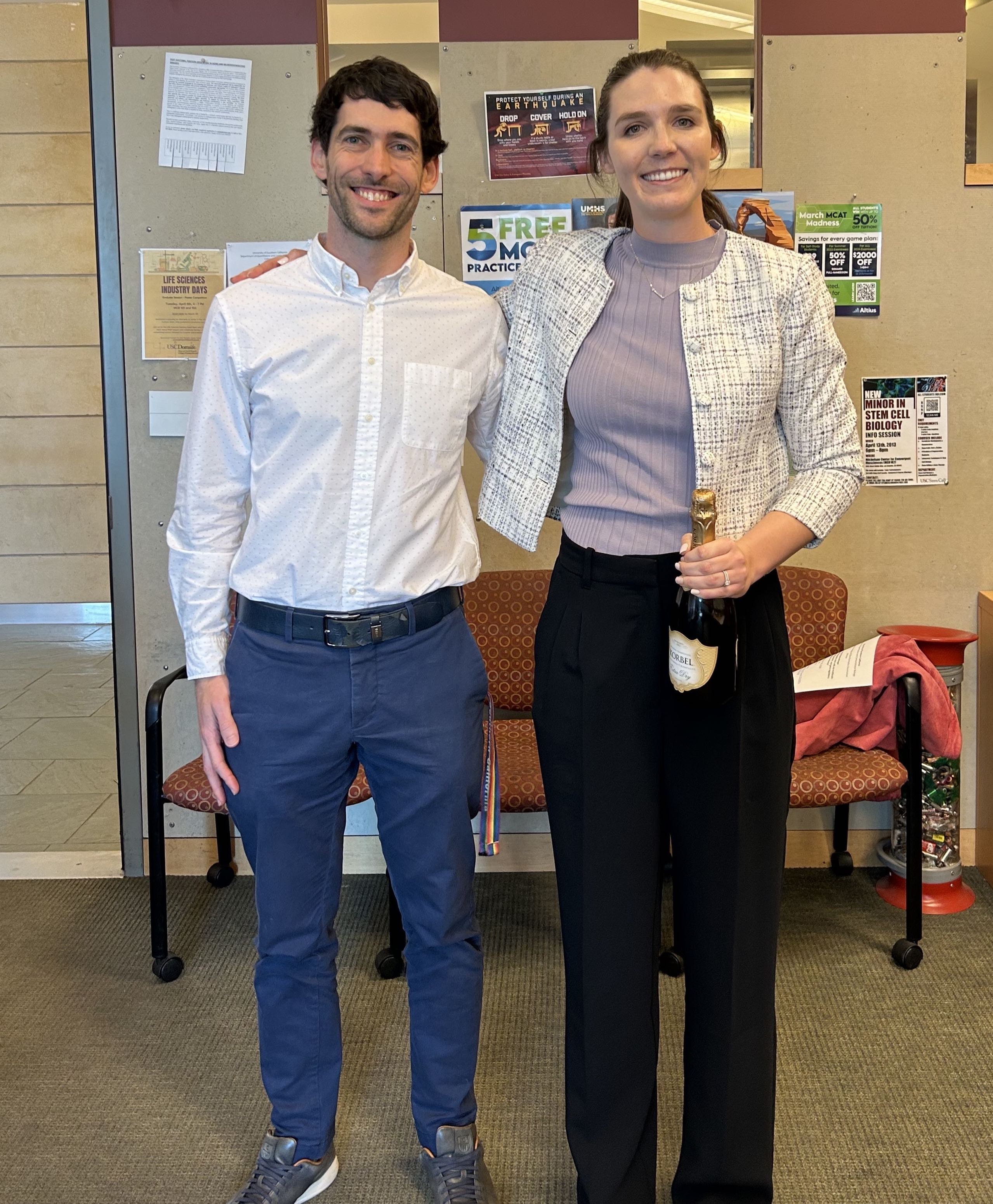Ivy’s paper is out now! In a large collaboration led by the McMahon lab together with our lab & and the labs of Lior Pachter & Junhyong Kim we investigated the origins of sex differences in the mammalian kidney. Did you know that male and female kidneys have highly diverged gene expression programs in proximal tubule cells?! Through time-course RNA-seq coupled with joint multiomics (assaying scRNA-seq + scATAC-seq) of WT and AR-ko kidneys we discovered how Androgen receptor controls the sex dimorphism of cell fates in the kidney.
Megan’s paper is up now on bioRxiv, in which we present popInfer: gene regulatory inference with pseudocells over pseudotime. We developed methods that make use of joint multi-omics (RNA-seq + ATAC-seq from the same single cells) to infer networks controlling lineage-specific cell fate decisions during hematopoiesis. Read more on twitter.
Jesse’s paper in which we model myeloid suppressor cell dynamics and their impact on tumor outcomes in metastatic niches is out now in Cancer Immunology Research.
Our perspective article on why chose Julia as a high-level programming language in the biological sciences is out now in Nature Methods.
Adam visited Florida to give two talks this week, at the UF BME department of the University of Florida, Gainesville, and at the Integrated Mathematical Oncology department in the Moffitt Cancer Center; leaders in mathonco. It was a pleasure to visit both groups, fantastic scientific discussions all round. Plus Tampa Bay at sunset.
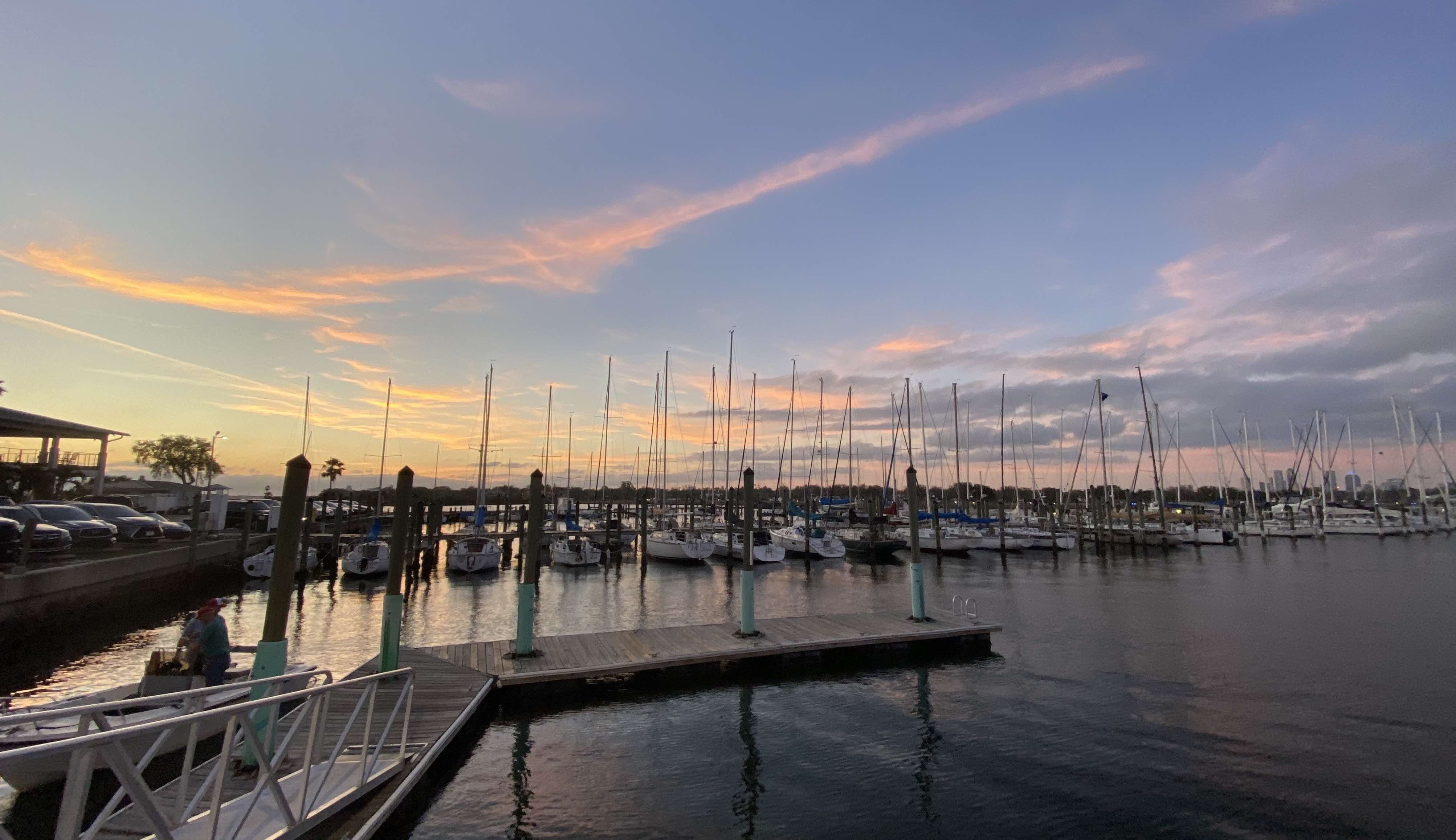
Adam gave a keynote talk at BIRS 23w5007: Computational Modelling of Cancer Biology and Treatments. It was a week filled with stimulating scientific discussions and snow.
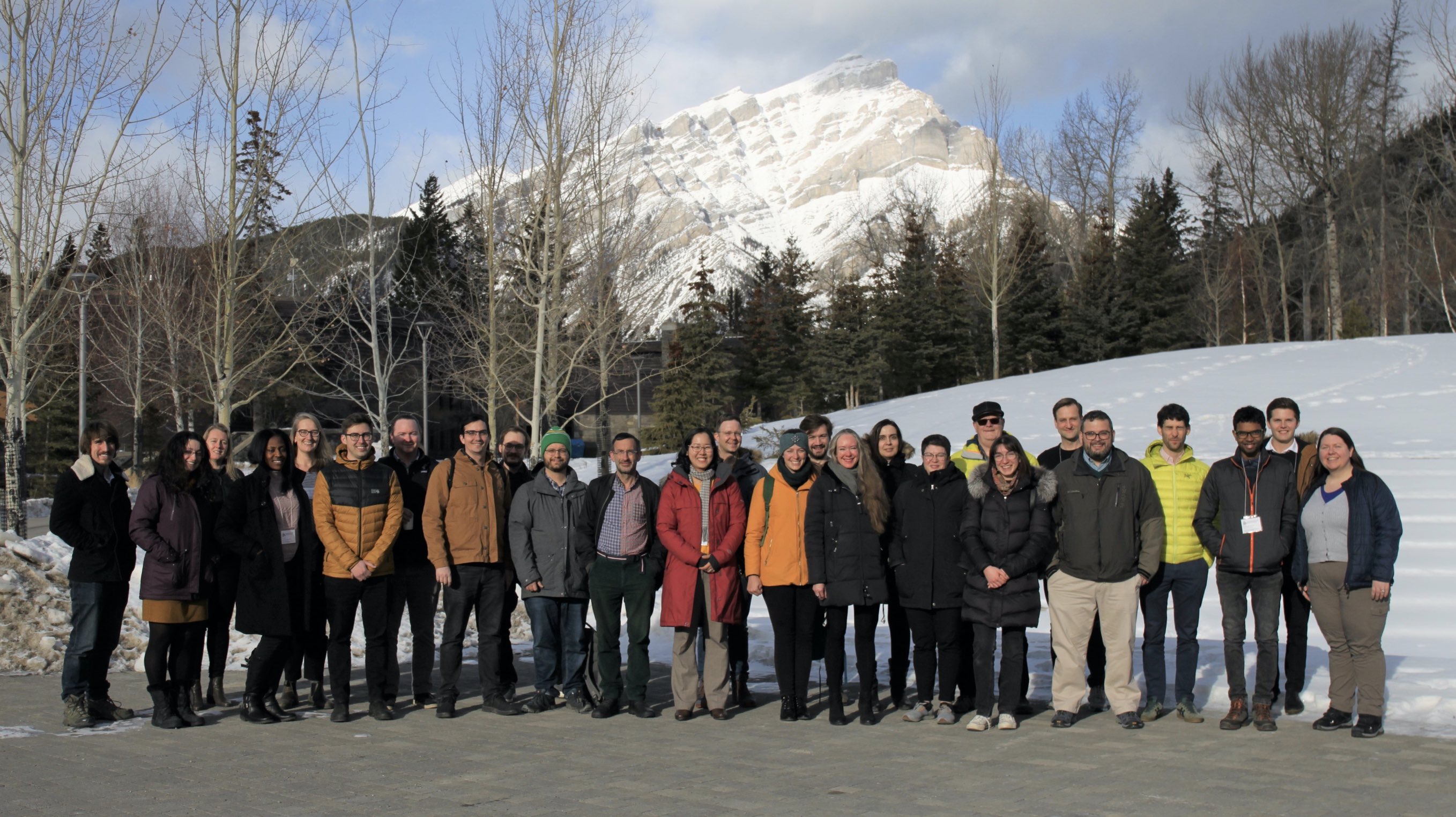
Adam wrote a News & Views article published today in Nature Chemical Biology. In the same issue, through a combination of experiments and mathematical modeling, Daneshpour et al. discovered that — while differentiating but not self-renewing — embryonic stem cells communicate over far greater distances than previously appreciated, exhibiting quorum sensing-like behavior. “Voices carry” comes from here, for any readers who happen not to be new wave afficionados.
